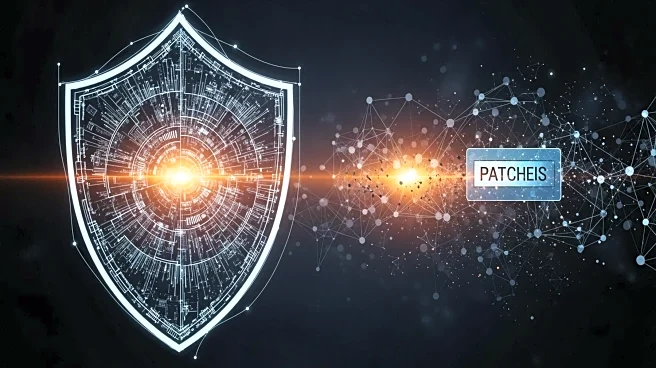What's Happening?
F5 Networks has disclosed a cyberattack attributed to a nation-state threat actor, with indications pointing to China. The attack targeted F5's BIG-IP appliances, involving malware named Brickstorm. The hackers reportedly accessed and exfiltrated files,
including source code and information on undisclosed vulnerabilities. F5 has released patches for several vulnerabilities in its products, some rated as 'high severity.' The U.S. Cybersecurity and Infrastructure Security Agency (CISA) and the UK's National Cyber Security Centre (NCSC) have issued alerts, warning organizations about potential threats from the compromised source code.
Why It's Important?
The cyberattack on F5 Networks poses significant risks to organizations using its products, particularly in the U.S. and UK. The theft of source code and vulnerability information could enable threat actors to exploit F5 devices, potentially compromising federal networks and other critical infrastructure. The incident underscores the growing threat of nation-state cyberattacks and the importance of robust cybersecurity measures. Organizations may face increased risks of data breaches and system disruptions, necessitating urgent patching and security enhancements.
What's Next?
Organizations using F5 products are advised to inventory their BIG-IP hardware and software, apply patches promptly, and enhance security measures. CISA has issued an emergency directive for U.S. government agencies to address vulnerabilities by October 31. The NCSC has provided similar guidance for UK organizations. Continued monitoring and threat intelligence efforts are expected to mitigate risks and prevent further exploitation. F5 Networks is collaborating with cybersecurity firms Mandiant and CrowdStrike to investigate and secure its systems.
Beyond the Headlines
The incident highlights the strategic importance of cybersecurity in protecting national infrastructure from foreign threats. It raises concerns about the potential for future attacks exploiting stolen source code and vulnerabilities. The event may prompt increased investment in cybersecurity defenses and international cooperation to combat cyber espionage. Ethical considerations regarding data privacy and security are also brought to the forefront, emphasizing the need for transparent and secure digital practices.















